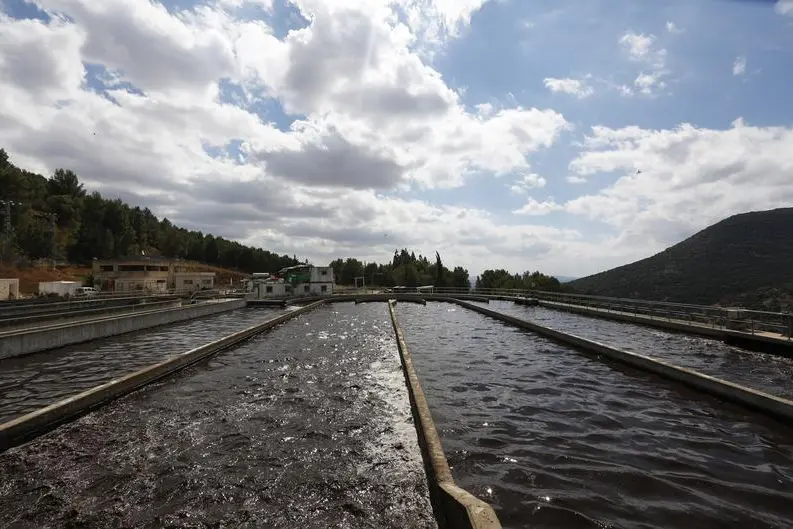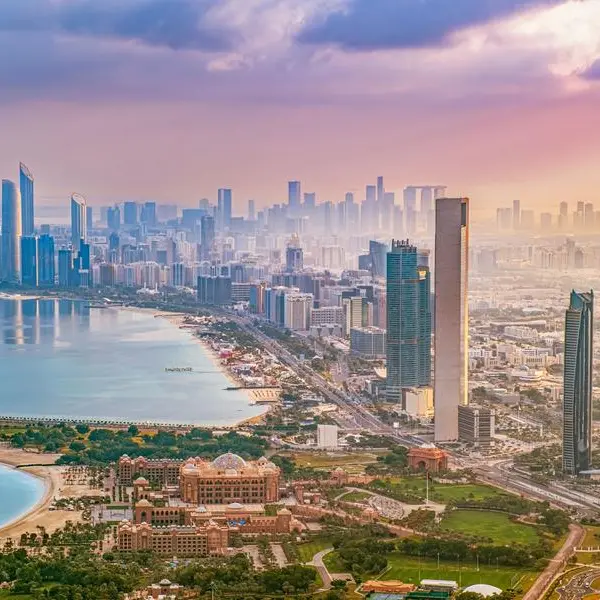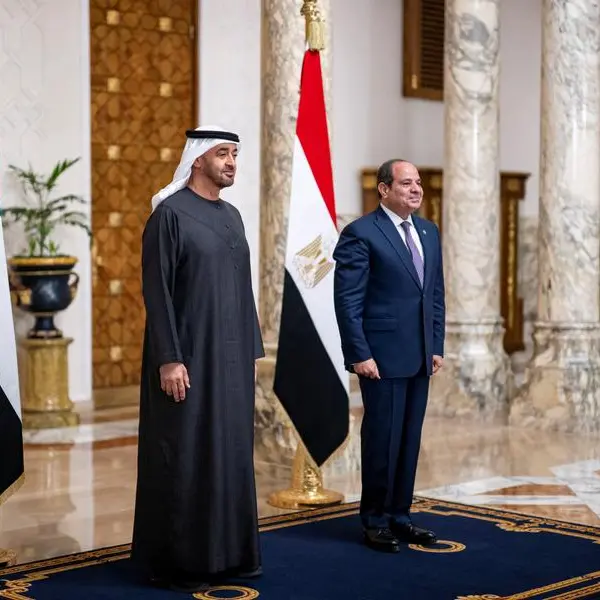PHOTO
29 June 2015
DUBAI -- Nestlé unveiled recently the first regional "Nestlé in Society - Creating Shared Value" (CSV) report which revealed, among others, that a 71% reduction in absolute waste disposal was achieved between 2009 and 2014 while production increased by 62%, and 42% reduction in water withdrawal and 25% reduction in greenhouse gas emissions per ton of product manufactured over the same period.
Yves Manghardt, Nestlé Middle East Chairman and CEO, said "the report underlines Nestlé's fundamental belief that, for a company to be successful over the long term, it must also create value for society, and the commitments show our determination to achieve this."
Karine Turk, Creating Shared Value Manager, told the Saudi Gazette that "globally, Nestlé has been issuing society reports since 2004, and since 2012, we started doing globally forward-looking commitments with specific objectives and accountability to how we want to reach these objectives and fulfill our promises," she said.
"For us in Nestlé Middle East it's our first time that we publish a report at local level.... so it's very important for us to include commitments that are relevant to our region. These commitments are not far from the main global commitments, but these are very specific to us, with specific objective, and we will merge them," she noted.
In the Middle East, where under-nutrition and obesity exist side by side, the regional report's commitments focus on leading the industry in nutrition and health research, and providing nutritionally sound products designed for children to nurture healthier generations.
Specific commitments promote healthy diets and lifestyles, mainly through the Nestlé Healthy Kids Program - Ajyal Salima, developed by the American University of Beirut and now in three countries in the region where it has reached over 16,000 children to date. Further, Nestle provides nutritionally sound products designed for children with three new products set to be launched by the end of 2015 that help reduce the risk of under-nutrition through micronutrient fortification, by providing 8.6 billion fortified food servings in the Middle East by the end of 2015, compared to 8 billion in 2014, while at the same time ensure responsible marketing communication to children and market breast-milk substitutes responsibly.
Ongoing investments in scientific nutritional research, globally and in the region, and through external collaborations and partnerships with entities including the American University of Beirut, Jordan's Royal Health Awareness Society, the Dubai Health Authority, and Saudi Arabia's Tatweer Education Holding aim to help Nestlé achieve these targets and continually and positively contribute to society's nutrition, health and wellness needs.
Additional commitments entail managing the use of resources at Nestlé Middle East's 18 factories, specifically water, to achieve efficiency across its operations; promoting environmental sustainability such as improving the environmental performance of packaging; and compliance with international, local and stringent internal regulations.
Other commitments focus on people - with actions to support youth employment in the Middle East including the example of the Nestlé Center of Excellence -- a training academy founded in 2012 in Saudi Arabia and now also in Oman. It trains university graduates in the areas of business, nutrition, and sales, with specific focus on women to enhance gender balance at the workplace.
Manghardt added in the presentation that the percentage of Saudization in Nestlé Saudi Arabia is 41 percent, and that they are creating more opportunities for Saudis.
"In a world facing long-term economic, social and nutrition challenges that cannot be solved by governments alone, we believe that corporations have a role to play in contributing to solutions, and we made a conscious decision to publish commitments so we can play our role in tackling these problems," Manghardt remarked.
"It takes concerted collective efforts to truly impact society positively, and we know that our actions in Creating Shared Value would not be the success they are nor sustainable without the support and trust of the various institutions, governments, and other entities we work with in the region - all of whose feedback we always look forward to hearing to help us further improve in the future."
DUBAI -- Nestlé unveiled recently the first regional "Nestlé in Society - Creating Shared Value" (CSV) report which revealed, among others, that a 71% reduction in absolute waste disposal was achieved between 2009 and 2014 while production increased by 62%, and 42% reduction in water withdrawal and 25% reduction in greenhouse gas emissions per ton of product manufactured over the same period.
Yves Manghardt, Nestlé Middle East Chairman and CEO, said "the report underlines Nestlé's fundamental belief that, for a company to be successful over the long term, it must also create value for society, and the commitments show our determination to achieve this."
Karine Turk, Creating Shared Value Manager, told the Saudi Gazette that "globally, Nestlé has been issuing society reports since 2004, and since 2012, we started doing globally forward-looking commitments with specific objectives and accountability to how we want to reach these objectives and fulfill our promises," she said.
"For us in Nestlé Middle East it's our first time that we publish a report at local level.... so it's very important for us to include commitments that are relevant to our region. These commitments are not far from the main global commitments, but these are very specific to us, with specific objective, and we will merge them," she noted.
In the Middle East, where under-nutrition and obesity exist side by side, the regional report's commitments focus on leading the industry in nutrition and health research, and providing nutritionally sound products designed for children to nurture healthier generations.
Specific commitments promote healthy diets and lifestyles, mainly through the Nestlé Healthy Kids Program - Ajyal Salima, developed by the American University of Beirut and now in three countries in the region where it has reached over 16,000 children to date. Further, Nestle provides nutritionally sound products designed for children with three new products set to be launched by the end of 2015 that help reduce the risk of under-nutrition through micronutrient fortification, by providing 8.6 billion fortified food servings in the Middle East by the end of 2015, compared to 8 billion in 2014, while at the same time ensure responsible marketing communication to children and market breast-milk substitutes responsibly.
Ongoing investments in scientific nutritional research, globally and in the region, and through external collaborations and partnerships with entities including the American University of Beirut, Jordan's Royal Health Awareness Society, the Dubai Health Authority, and Saudi Arabia's Tatweer Education Holding aim to help Nestlé achieve these targets and continually and positively contribute to society's nutrition, health and wellness needs.
Additional commitments entail managing the use of resources at Nestlé Middle East's 18 factories, specifically water, to achieve efficiency across its operations; promoting environmental sustainability such as improving the environmental performance of packaging; and compliance with international, local and stringent internal regulations.
Other commitments focus on people - with actions to support youth employment in the Middle East including the example of the Nestlé Center of Excellence -- a training academy founded in 2012 in Saudi Arabia and now also in Oman. It trains university graduates in the areas of business, nutrition, and sales, with specific focus on women to enhance gender balance at the workplace.
Manghardt added in the presentation that the percentage of Saudization in Nestlé Saudi Arabia is 41 percent, and that they are creating more opportunities for Saudis.
"In a world facing long-term economic, social and nutrition challenges that cannot be solved by governments alone, we believe that corporations have a role to play in contributing to solutions, and we made a conscious decision to publish commitments so we can play our role in tackling these problems," Manghardt remarked.
"It takes concerted collective efforts to truly impact society positively, and we know that our actions in Creating Shared Value would not be the success they are nor sustainable without the support and trust of the various institutions, governments, and other entities we work with in the region - all of whose feedback we always look forward to hearing to help us further improve in the future."
© The Saudi Gazette 2015





















